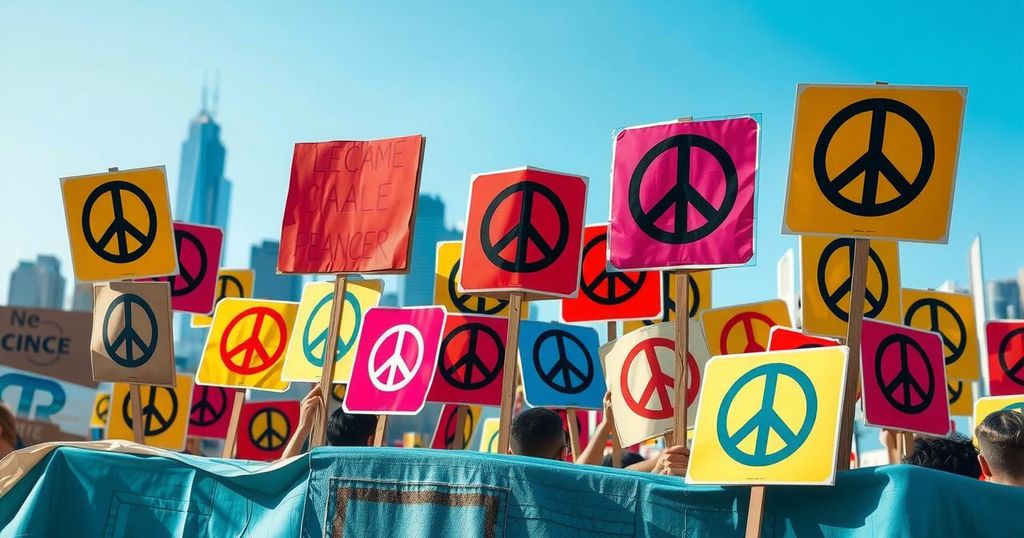Mahmoud Khalil, a Columbia University student and anti-Israel protester, was detained by ICE recently. He previously worked for UNRWA and held a senior role at a UK diplomatic office. His activism has garnered attention amid legal battles over his immigration status and First Amendment rights, following claims from the Trump administration that his actions contravene national interests.
Mahmoud Khalil, a detained anti-Israel protester from Columbia University, previously worked at the United Nations Relief and Works Agency (UNRWA) while pursuing his graduate studies. Before this, he held a senior role at the UK office for Syria in Lebanon for four years, which required a rigorous security clearance, as noted by a former colleague. Khalil, a Syrian-born Palestinian and Algerian citizen, transitioned to the US in 2022 to enroll at Columbia.
Throughout his time at Columbia, Khalil’s activism intensified, culminating in his significant involvement in anti-Israel protests against the backdrop of rising tensions following recent violence in the region. He played a key role in protests and campus occupations through his leadership in the Columbia United Apartheid Divest (CUAD) group, which has previously expressed radical views. His activism led to his detention by ICE agents recently, amid claims by the Trump administration that his actions threaten national interests.
After marrying Noor Abdalla, a US citizen, in 2023, Khalil became a permanent resident. The pair’s relationship began in 2016 while Abdalla participated in a scholarship program supervised by Khalil. They are now expecting their first child, yet the recent detention has placed their future into jeopardy. Khalil’s lawyers contend the detention violates his First Amendment rights, arguing it constitutes retaliation for his political views. As they navigate legal battles, questions surrounding immigration and free speech loom, drawing public attention to Khalil’s case and broader implications.
In summary, Mahmoud Khalil’s journey from working at UNRWA and holding a significant role in the UK government to becoming a prominent figure in anti-Israel protests at Columbia highlights ongoing tensions surrounding immigration and political dissent in the United States. Khalil’s current legal struggles emphasize the intersection of immigration enforcement and First Amendment rights. This situation raises important questions about the balance between national security interests and individual freedoms.
Original Source: nypost.com




